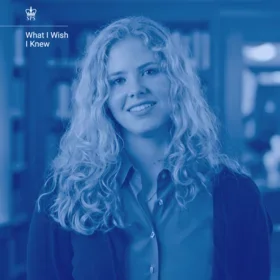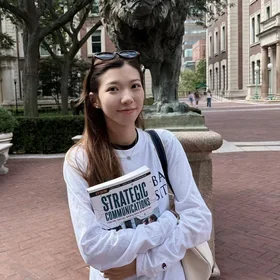Kathleen Banzon worked at the PR agency Ketchum, but she wanted to explore opportunities in nonprofits, corporate social responsibility (CSR), and international issues. Having already worked in the CSR space for her previous agency, she sought to steer her career more firmly towards social change.
She discovered the Negotiation and Conflict Resolution program (NECR) at Columbia University. The course of study combined exercises in negotiation and conflict resolution theories and often applied them to a global context. She says that she was drawn to the program due to its international perspective, but also relished the tough lessons in negotiation. “I've learned to fail,” she tells me, laughing as she reflects on a particularly challenging class simulation.
Currently, she’s finishing up her program and working on her Capstone, a research project on gender equity and female empowerment in the Philippines. She will graduate this year, and she says that she’ll leave Columbia with a more nuanced understanding of conflict resolution – as well as new possibilities for her career.
What drew you to NECR?
I worked for the corporate communications team [at the global agency Ketchum]. I liked working in a corporate environment, but I wanted some element of partnering with nonprofits. I was looking into programs that were international, or something that could translate to that field.
So you were interested in the global possibilities of the program. What do you think was valuable to you about the program itself?
The biggest thing that I gained from the entire experience was the professional outlook from graduating from a prestigious school.
Also, I've never been challenged more than I have in the last year. I've learned to fail. One of my professors said, "That's not failing. It's learning." Basically, the professors [conducted] simulations, [which prompt you to] negotiate in front of your peers. Sometimes it led to heated debates. It really taught you to think differently.
Can you give me an example of one of these scenarios?
We did role-plays. We had a simulation where you climbed Mount Everest as a five-member team. It [lasted] three, almost four hours. You sat there and you basically argued, negotiated, and tried to get your team to climb with you. Everyone had their own hidden agenda. Everyone was so staunch in their points of view. You were trying to convince people to do something for you, or to work with you. It was intense, but not in a bad way.
What other takeaways did you gain from the program?
Negotiation. Women tend not to negotiate [their salaries]. I'm a self-identified feminist, and I was aware of [that wage gap] even before I got into the program. But I didn't understand the techniques of negotiation at the time.
There’s an art to it. If you can't get the salary that you want, negotiate for a parking space, negotiate for more vacation, negotiate for a budget to attend a conference. There are just so many creative ways of asking for what you want. It's good to know the tools that you can use, and not to limit yourself.
As for conflict resolution, it’s very transferable when it comes to your personal and professional life. When it came to managing issues with other teams or having a conflict with my boss for whatever reason, I knew how to separate my feelings from the situation. The whole process has really taught me to know how to engage without being defensive – or being offensive. It took a lot of practice.
Are you going to go back into PR, or are you going to explore other career paths?
I’ve been getting interviews from different industries. PR is definitely one of them, and my only stipulation for going back to PR is that I'd like to work in a CSR capacity again. I've also gotten interviews at nonprofits and a hedge fund. But the beauty of this program is that you can explore and expand [your knowledge], and see where you want to go.


